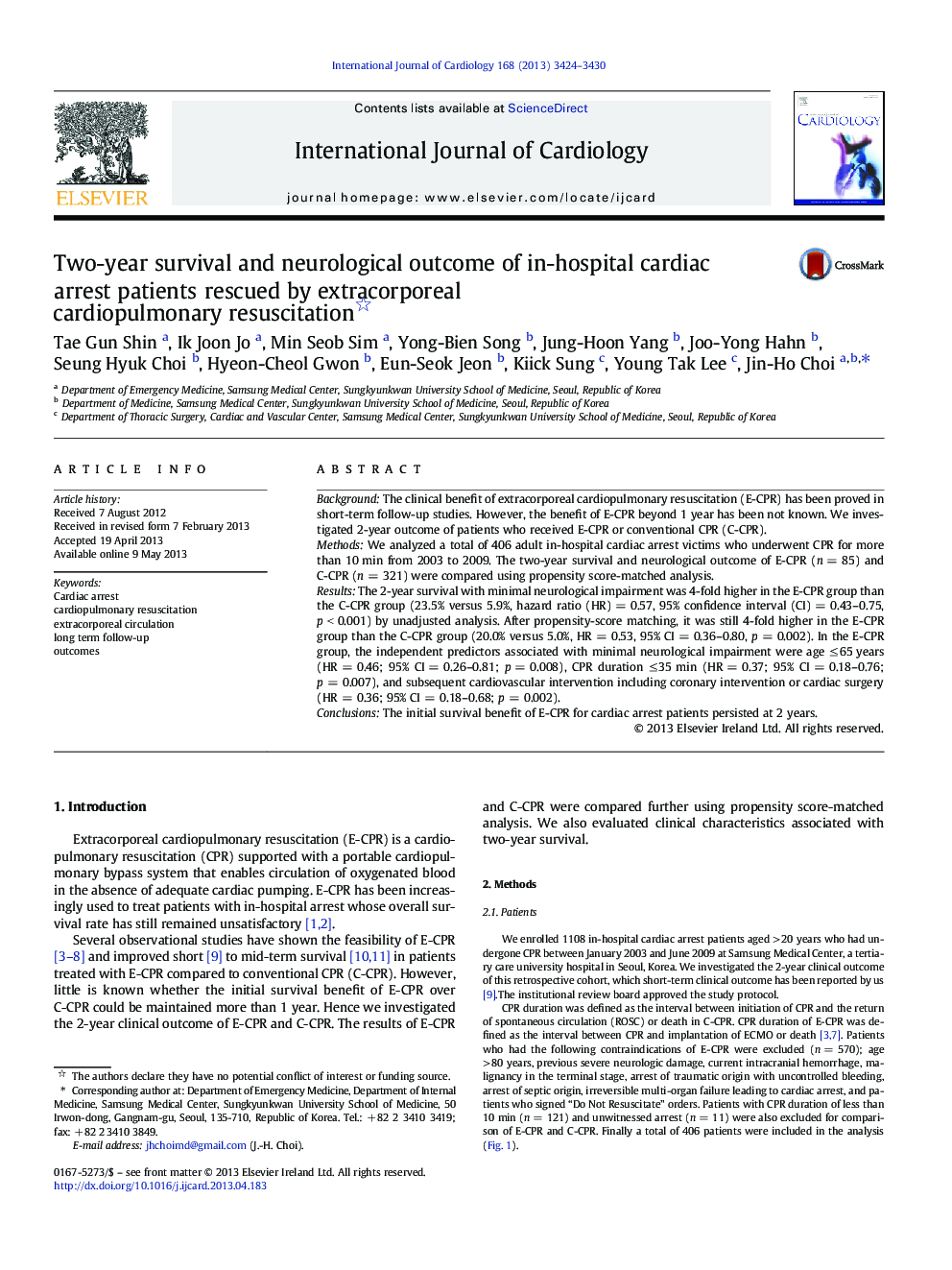| Article ID | Journal | Published Year | Pages | File Type |
|---|---|---|---|---|
| 5973651 | International Journal of Cardiology | 2013 | 7 Pages |
BackgroundThe clinical benefit of extracorporeal cardiopulmonary resuscitation (E-CPR) has been proved in short-term follow-up studies. However, the benefit of E-CPR beyond 1 year has been not known. We investigated 2-year outcome of patients who received E-CPR or conventional CPR (C-CPR).MethodsWe analyzed a total of 406 adult in-hospital cardiac arrest victims who underwent CPR for more than 10 min from 2003 to 2009. The two-year survival and neurological outcome of E-CPR (n = 85) and C-CPR (n = 321) were compared using propensity score-matched analysis.ResultsThe 2-year survival with minimal neurological impairment was 4-fold higher in the E-CPR group than the C-CPR group (23.5% versus 5.9%, hazard ratio (HR) = 0.57, 95% confidence interval (CI) = 0.43-0.75, p < 0.001) by unadjusted analysis. After propensity-score matching, it was still 4-fold higher in the E-CPR group than the C-CPR group (20.0% versus 5.0%, HR = 0.53, 95% CI = 0.36-0.80, p = 0.002). In the E-CPR group, the independent predictors associated with minimal neurological impairment were age â¤Â 65 years (HR = 0.46; 95% CI = 0.26-0.81; p = 0.008), CPR duration â¤Â 35 min (HR = 0.37; 95% CI = 0.18-0.76; p = 0.007), and subsequent cardiovascular intervention including coronary intervention or cardiac surgery (HR = 0.36; 95% CI = 0.18-0.68; p = 0.002).ConclusionsThe initial survival benefit of E-CPR for cardiac arrest patients persisted at 2 years.
